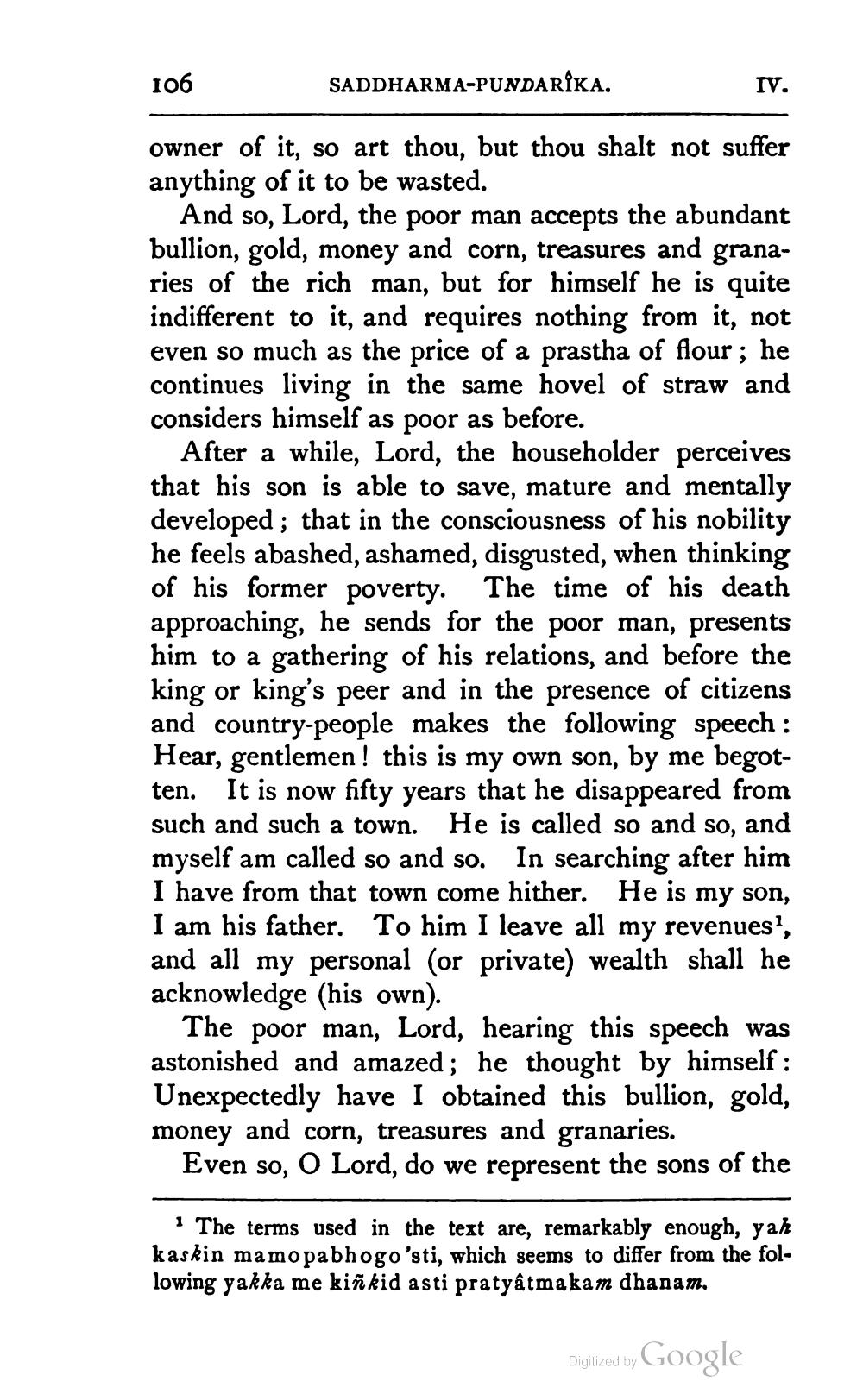________________
106
SADDHARMA-PUNDARÍKA.
owner of it, so art thou, but thou shalt not suffer anything of it to be wasted.
And so, Lord, the poor man accepts the abundant bullion, gold, money and corn, treasures and granaries of the rich man, but for himself he is quite indifferent to it, and requires nothing from it, not even so much as the price of a prastha of flour; he continues living in the same hovel of straw and considers himself as poor as before.
IV.
After a while, Lord, the householder perceives that his son is able to save, mature and mentally developed; that in the consciousness of his nobility he feels abashed, ashamed, disgusted, when thinking of his former poverty. The time of his death approaching, he sends for the poor man, presents him to a gathering of his relations, and before the king or king's peer and in the presence of citizens and country-people makes the following speech: Hear, gentlemen! this is my own son, by me begotten. It is now fifty years that he disappeared from such and such a town. He is called so and so, and myself am called so and so. In searching after him I have from that town come hither. He is my son, I am his father. To him I leave all my revenues1, and all my personal (or private) wealth shall he acknowledge (his own).
The poor man, Lord, hearing this speech was astonished and amazed; he thought by himself: Unexpectedly have I obtained this bullion, gold, money and corn, treasures and granaries.
Even So, O Lord, do we represent the sons of the
1 The terms used in the text are, remarkably enough, yah kaskin mamo pabhogo'sti, which seems to differ from the following yakka me kinkid asti pratyâtmakam dhanam.
Digitized by
Google




